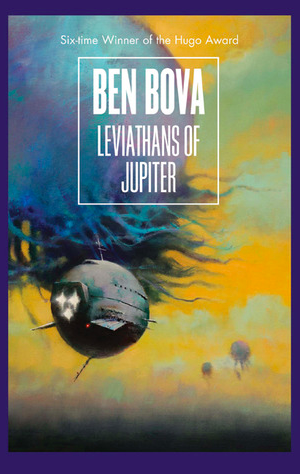 There’s a reason Ben Bova has won six Hugo Awards. The man is a phenomenal writer of science-fiction. Not only does he take hard sci-fi concepts and make them accessible, but he populates his stories with memorable characters.
There’s a reason Ben Bova has won six Hugo Awards. The man is a phenomenal writer of science-fiction. Not only does he take hard sci-fi concepts and make them accessible, but he populates his stories with memorable characters.
Admittedly, I’m late to the party when it comes to appreciating his work. I’ve only read a handful of his books, and even those, only in the past few years. That said, the greatest measure I have for a novel is whether I will find it a home on my bookshelf and read it again, at least once.
Leviathans of Jupiter fits the bill.
It’s set a few hundred years in the future. Bova brings together a motley crew of four individuals on a quest to determine the sentience of the aforementioned leviathans, which are city-sized alien creatures akin to whales swimming the sprawling Jovian seas. It’s a fantastic read, one I encourage you to pick up.
But my purpose here is to look beyond the main story, to the part that truly caught my attention.
Bova writes a Christian character well.
Grant Archer, manager of the space station featured in the novel, headed the cast in Jupiter, to which Leviathans is the sequel. Having led a disastrous mission to the surface 20 years before, he’s cautious about exposing a new team to the same risks, advanced technology or not.
Bova presents Grant as a believer, but as one who has no problem marrying his faith with the possibility of sentient alien life. He’s desperate in his search for knowledge:
We’ve got to get a team of scientists down into that ocean, with equipment that will allow us to make meaningful contact with the leviathans. Or forget about them altogether. Give up trying to make contact with an intelligent alien race.
He closed his eyes and muttered a prayer for guidance. No answer came to him, but Grant accepted God’s seeming silence. He hears, Grant told himself. He’ll send the answer. One way or another.
Bova’s word choices to describe the character are intriguing. “God’s seeming silence,” and “He’ll send the answer.” Grant isn’t some caricature of a Christian who chastises others for their failings or rants about unbelievers, as if that were all followers of Christ were supposed to do. He prays, he has doubts and worries, but in the end, he believes.
Grant sees his pursuit of scientific knowledge as inextricably tied to these beliefs.
“We’re all in God’s hands, Mrs. Westfall. Those who choose to seek out more knowledge about his universe might be risking their lives, but it’s in the best cause of all.”
Whether or not Grant Archer is evangelical in the modern American sense, Bova leaves unclear. But what is crystal clear is the other characters’ reaction to Grant. No one makes fun of Archer. They respect him. Even the station’s chef, a man who runs a black market for virtual reality porn and recreational drugs, turns to Archer for help when he’s got no one else to trust, because he knows Archer is a good man. This fits well with Biblical admonitions for believers to remain above reproach from the world.
Of course, the chef Devlin thinks Archer is a pushover because of his faith, and when it comes to the final confrontation, that same faith gives Archer strength to hold ground against the tyrannical opponent.
There’s other references to God and religion scattered throughout the novel, primarily in the form of the New Morality. They were a political forced that held sway on Earth about two decades before Leviathans, but have fallen out of favor. Other characters refer to them as fundamentalists; Archer was sent to spy on the very station he commands by this faction.
One of the other characters, Andy Corvus, makes a telling statement:
“They thought that studying ET life contradicts the Bible?” Corvus said. “That’s nutty.”
It infers that Andy Corvus, a young scientist, does not think such research contradicts Scripture. Yet, we get no indication he’s even mildly religious, and Bova makes the point of having Archer say the New Morality are worried. If Bova is lobbing a message, it’s that the Christian faith isn’t vulnerable to scientific findings.
Would discovery of sentient alien life ruin Christianity? Or would it expand our appreciation of the universe God created? Leviathans of Jupiter suggests we consider the latter a gift from that very source.
***
 Steve Rzasa is the author of eleven novels and numerous short stories of science-fiction, fantasy, steampunk, and contemporary fiction. His work has won the ACFW Carol Award for Speculative fiction.
Steve Rzasa is the author of eleven novels and numerous short stories of science-fiction, fantasy, steampunk, and contemporary fiction. His work has won the ACFW Carol Award for Speculative fiction.
Steve received his bachelor’s degree in journalism from Boston University, and worked for eight years at newspapers in Maine and Wyoming. He’s been a librarian since 2008, and received his Library Support Staff Certification from the American Library Association in 2014—one of only 100 graduates nationwide and four in Wyoming. He is the technical services librarian in Buffalo, Wyoming, where he lives with his wife and two boys. Steve’s a fan of all things science-fiction and superhero, and is also a student of history.


Leviathans of Jupiter was a terrific book. It was the first Ben Bova I picked up, and still my favorite of his. My favorite thing about sci fi is unique and quirky concepts, and it fit the bill perfectly. I didn’t at first remember the Christian character, but now I do reading this article.
Also, please, my editor heart would love you if you fixed the typo in the headline. Thanks!
Many, many years ago–the 70s and 80s, to be exact– I used to read Analog: Science Fiction, Science Fact, and Ben Bova was the editor. Under his editorship, the stories were fairly clean. Then Mr. Bova moved to another magazine, and his successor allowed what can only be described as sci-fi porn stories to flourish. I dropped my subscription. But I can vouch for the fact that Mr. Bova is a fine writer with fully-developed, realistic characters, though it’s been ages since I’ve read anything by him.
Wow. I’d never heard of Bova. Shame. Picking up Leviathans of Jupiter because it sounds extremely interesting. Thanks for introducing me to a new writer!